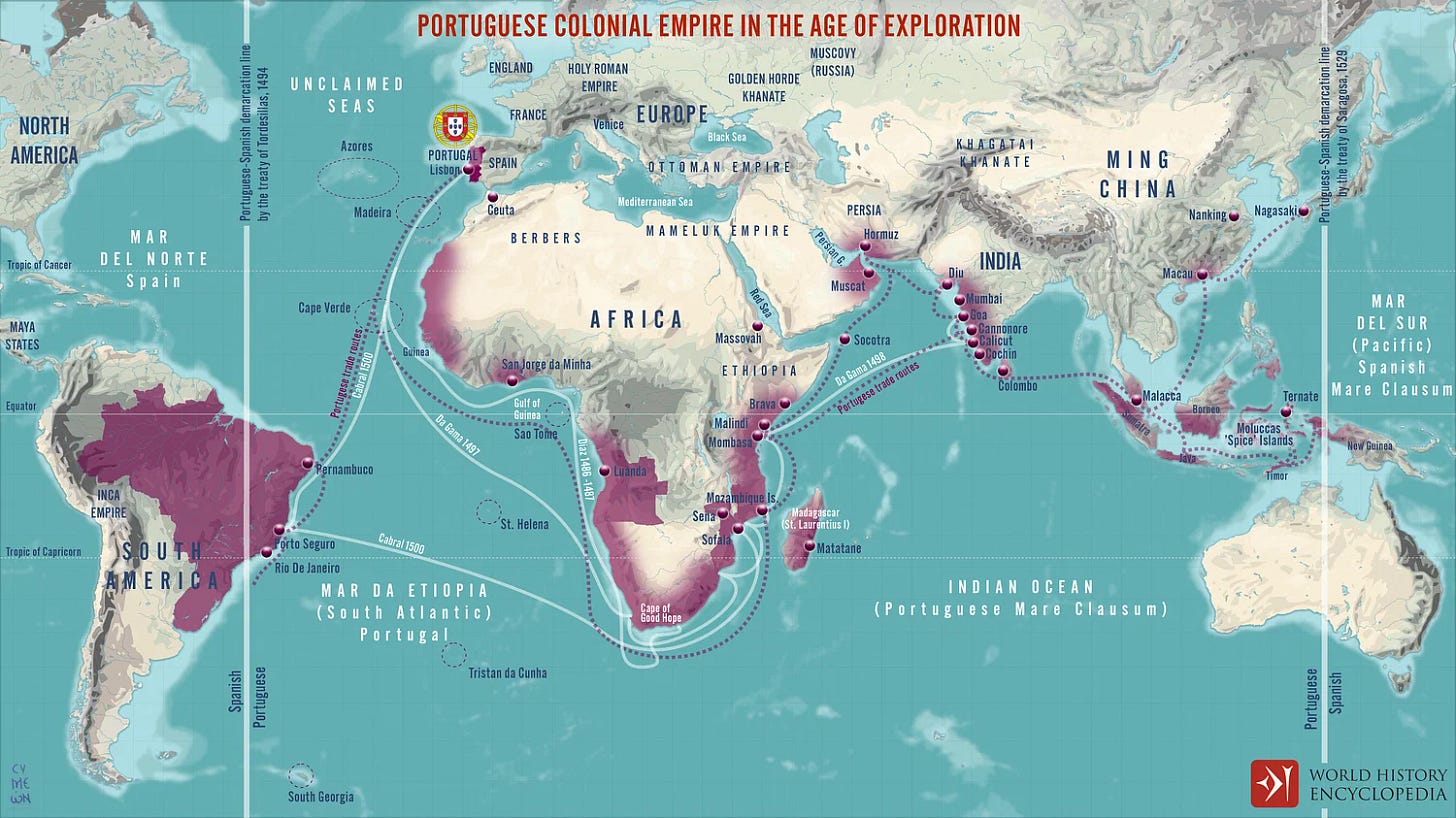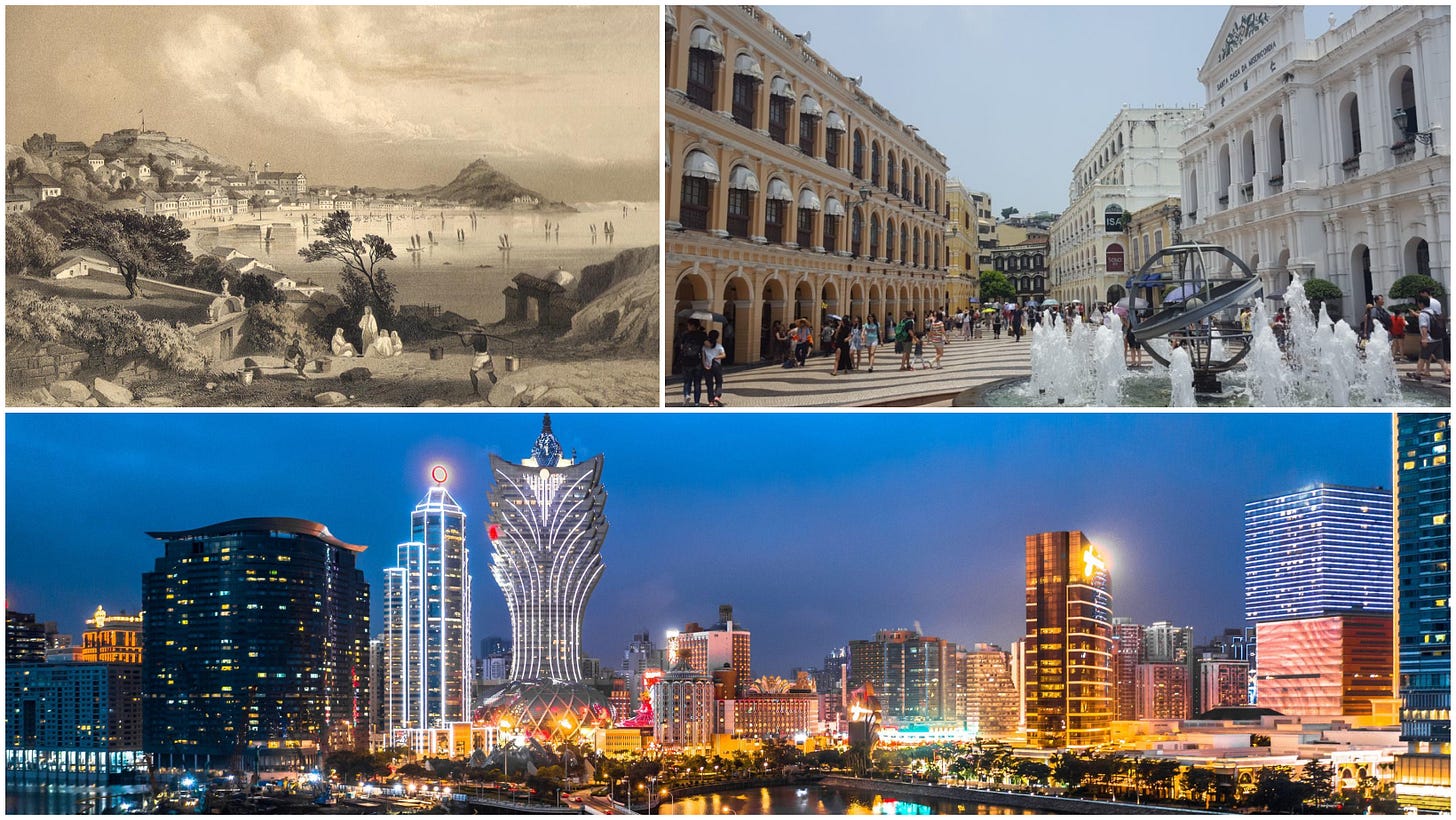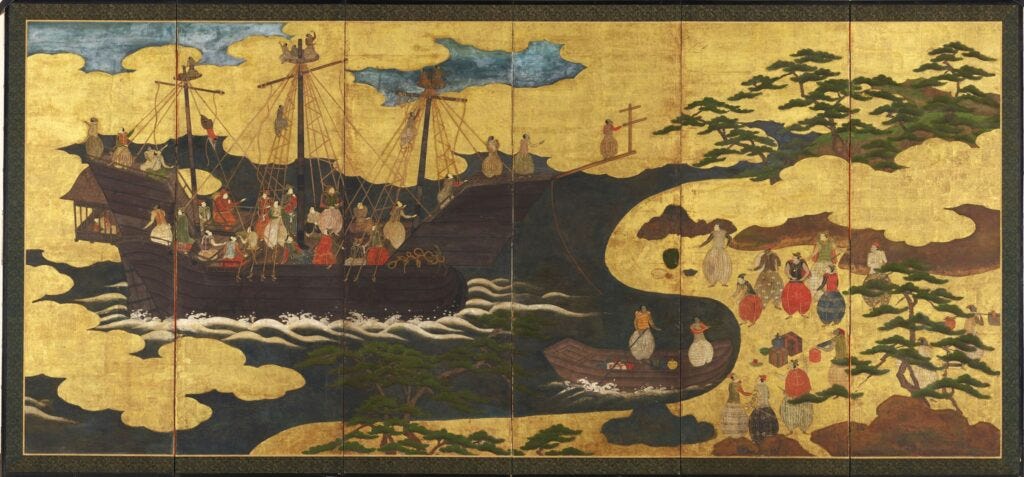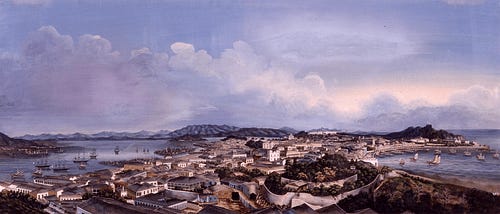Macau is an interesting case study of the odd growth of trading routes and holdings over history.
For many Americans, they first heard of Macau through the TV show “Shogun.” The show occasionally mentions Macau as the base of Portuguese in Japan and the jumping-off point for Catholicism in the region.
This impression is correct but only gives a partial view into Macau's past. This “partial history,” combined with what American history teaches, ignores the early impact of Macau in Chinese trade and the opening of Japanese trade before America’s “Open Door” policy was imposed in 1899.
Historical Macau and the growth of Portuguese influence
In 1494, the Spanish and Portuguese governments divided the world into two halves. Spain got everything west of Brazil, including the Philippines. Portugal was given everything east of Brazil, including China and Japan.
Portugal swept through the region, establishing ports in India in Brazil, Mozambique (west coast of Africa), Goa, and Cochi (aka Kochi). Then, they moved to Malacca, very near today’s Singapore, and from there, into China at Macau.

The Portuguese fought several unsuccessful skirmishes between the 1520s and the 1550s, trying to take smallish port Macau, but were turned back repeatedly as Pirates. The Chinese of the Ming Dynasty captured weapons from the Portuguese, who they described as Frankish Pirates, and reversed the engineering of the matchlock musket and the cannons to create their own.
In 1554, the Portuguese sent in negotiators as “Portuguese” and not pirates. Portugal signed a permanent lease in 1557, paying the Chinese for the portage rights. The Catholics established a Diocese in 1556. However, the colony could not establish rights to trade with China, and most trade that occurred happened via a black market.
The Japanese Period
With Chinese trade effectively cut off, the Portuguese established a port in southern Japan at Nagasaki, and then trade moved through the port of Macau. Portugal became the only nation that was allowed onto the Japanese mainland. They were successful in both trade and with the spread of Catholicism. By 1590, there were about 215,000 Christians, most of these in the upper echelons of Japanese society, which benefited from Portuguese trade.
The trade benefitted Macau as goods between China and Japan went through Macau in the late 1500s through 1639. However, the Catholics began to agitate against the non-Christian rulers in Japan, and in 1587, an edict was decreed expelling all Christians. It was never carried out, but resentment and attacks against the Portuguese and Christians grew. In 1638, a Christian uprising was put down, and all Catholics had to renounce their religion or be killed.
In 1639, the Portuguese were expelled from Nagasaki and replaced as the only foreign trading partner by the Dutch, albeit with the Dutch forced off the Japanese mainland onto islands just offshore of Nagasaki.
During the Portuguese period of trading, gold, silver, and copper were the first items exploited. However, luxury goods were of such quality that they soon became a significant part of this trade.
Entrance to Chinese Trade
The Chinese Qing dynasty closed access to trade in China from 1644 through the opium wars in the 1840s. During this period, smuggling and black market trade continued throughout Macau. After the Opium Wars, the British were granted sovereignty over Hong Kong, and the port of Macau became less critical as the only entry point to southern China. Due to China's weakness after these wars, Portugal could declare sovereignty over Macau and adjacent islands. In 1887, the Portuguese were given perpetual occupation rights over Macau. This agreement also stated that the Portuguese could not transfer these rights without Chinese approval.
Macau remained relatively unimportant until the Chinese Civil War when many Chinese fled to its relative safety. There, the swelling population drove the rise in textiles and clothing production, expanded tourism, and state-controlled gambling.
The Portuguese Carnation Revolution Changes Macau
1974, a combined military and dissident movement ended the 41-year-long authoritarian government rule in Portugal proper. This revolution changed Portugal and brought independence for the Portuguese colonies of Guinea-Bissau, Cape Verde, São Tomé & Príncipe, Mozambique, and Angola.
The change in government also led to Portugal’s offer to return Macau to China. China refused this because they believed Macau’s status might undermine the negotiations between China and Hong Kong. Macau remained a Portuguese colony until 1999 when it was transferred to China with a promise of “one country – two systems,” similar to the same promise made to Hong Kong.
The handover from Portugal to China in 1999 ended the 442-year Portuguese rule of the region.
Macau After Transfer to Present
Macau rapidly grew and constructed large infrastructure projects between the agreement to grant rule to China and the actual handover. Portuguese Macau built a container port and a international airport.
After Chinese rule began, one of the first things China approved was a much more liberal gambling scheme and invited foreign investors. This pushed the regional economy into double-digit growth.
Macau has avoided the political problems of Hong Kong in part because of the people of the region have a high degree of trust in the Chinese regime due to this rapid economic growth.
Gambling provides a steady flow of income. In some communities in China, gambling is extremely popular. Before the explosion of gambling in Macau, mainland Chinese residents had to travel to visit places where gambling was legal. Since Macau has approved building massive Las Vegas time casinos, its fortunes have flourished.
Macau is still a vibrant city bringing over 27 million tourists from China and Hong Kong. Another 1 million tourists come from Taiwan, with over 250,000 each coming from South Korea, The Philippines, Japan, and Malaysia. It is the only place to gamble in China and is called the “Las Vegas of the East” and “The Monte-Carlo of Asia.”
It may or may not continue to grow in population, but it has a vibrant economy but with a heavy reliance on tourism.






